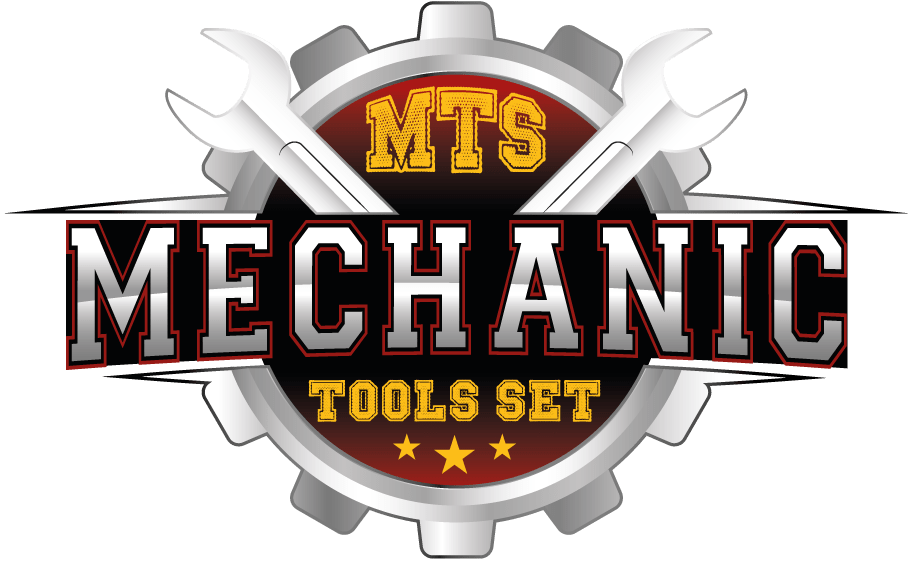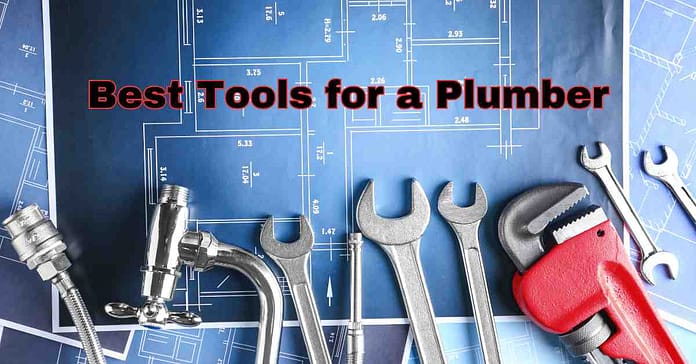Plumbers rely on various tools to perform their tasks efficiently. Essential tools for plumber include pipe wrenches, pliers, and pipe cutters.
Plumbing requires precision and the right set of tools for effective repairs and installations. Pipe wrenches help grip and turn pipes, providing the necessary torque. Pliers are versatile for gripping, twisting, and cutting wires or pipes. Pipe cutters ensure clean, smooth cuts on pipes, making them crucial for accurate fittings.
Other essential tools include plungers, tape measures, and plumbing snakes for clearing blockages. Using the right tools for plumber ensures efficient, high-quality work and reduces the risk of damage. Investing in durable, high-quality tools can significantly improve a plumber’s productivity and job satisfaction.
Hand Tools
Hand tools are essential for every plumber. They help perform tasks efficiently. These tools are portable and easy to use. Below, we discuss three important hand tools for plumbers.
Pipe Wrenches
Pipe wrenches are fundamental in plumbing. They grip and turn pipes. Pipe wrenches come in various sizes. They have adjustable jaws to fit different pipe sizes. Proper use prevents pipe damage.
| Type | Usage |
|---|---|
| Standard Pipe Wrench | General pipe work |
| Offset Pipe Wrench | Hard-to-reach areas |
| Compound Leverage Pipe Wrench | Stubborn pipes |
Pipe Cutters
Pipe cutters provide clean cuts on pipes. They offer more precision than saws. Pipe cutters are quick and easy to use. There are different types for different materials.
- Wheel cutters for copper pipes
- Plastic pipe cutters for PVC pipes
- Ratcheting cutters for tight spaces
Using the right pipe cutter ensures accurate and smooth cuts.
Pliers
Pliers are versatile tools. They grip, twist, and cut wires. They come in various shapes and sizes for different tasks. Some common types include:
- Slip-joint pliers for general gripping
- Needle-nose pliers for precision work
- Channel-lock pliers for larger items
Pliers make many plumbing tasks easier and faster.
Power Tools

Plumbers rely on power tools to complete their tasks efficiently. These tools save time and effort. They ensure precision and speed. Here are some essential power tools every plumber should have in their toolkit.
Drills
Drills are essential for any plumber. They help create holes in various materials. Cordless drills offer mobility and convenience. Plumbers often need to drill through walls, floors, and other surfaces. A good drill should have multiple speed settings. It should also have a powerful battery for long-lasting use.
- Hammer drills are useful for drilling through concrete.
- Right-angle drills help in tight spaces.
Investing in a high-quality drill can make a plumber’s job much easier.
Saws
Saws are crucial for cutting pipes and other materials. Different types of saws serve different purposes. Reciprocating saws are great for cutting through metal and plastic pipes. They are versatile and easy to handle. Jigsaws can make precise cuts in various materials. They are perfect for detailed work.
| Type of Saw | Best For |
|---|---|
| Reciprocating Saw | Metal and Plastic Pipes |
| Jigsaw | Detailed Cuts |
A good saw can significantly speed up a plumber’s work.
Press Tools
Press tools are becoming increasingly popular among plumbers. They help create secure connections without soldering. This is particularly useful for copper and PEX pipes. Battery-operated press tools offer convenience and portability. They can be used in tight spaces and are easy to operate.
- Battery-operated press tools are portable.
- Manual press tools are budget-friendly.
Using press tools can save time and reduce the risk of leaks.
Pipe Fitting Tools
Pipe fitting tools are essential for any plumber. They help ensure pipes fit perfectly. These tools make the job quicker and more efficient.
Flaring Tools
Flaring tools are used to make a cone-shaped flare at the end of a pipe. This helps in joining the pipe to a fitting.
- Flaring Tool Kit: Includes a flaring bar and a yoke.
- Single Flare: Creates a basic flare for low-pressure systems.
- Double Flare: Offers extra strength for high-pressure systems.
Threading Tools
Threading tools create threads on the ends of pipes. This allows them to screw into fittings or other pipes.
- Manual Pipe Threader: Ideal for small jobs.
- Electric Pipe Threader: Speeds up the process for larger projects.
- Threading Dies: Different sizes for different pipes.
Deburring Tools
Deburring tools remove sharp edges from cut pipes. This ensures a smooth fit and prevents injury.
| Tool | Purpose |
|---|---|
| Hand Reamer | Removes burrs from the inside of pipes. |
| External Deburring Tool | Cleans the outer edges of the pipe. |
| Deburring Brush | Cleans both internal and external burrs. |
Using these tools ensures a smooth, professional finish. They make the plumber’s job easier and more efficient.
Safety Gear

Safety gear is very important for plumbers. It protects them from injuries. Plumbers need to wear it to stay safe. Let’s talk about the different types of safety gear.
Gloves
Gloves protect a plumber’s hands from sharp objects. They also protect from chemicals and hot surfaces. Gloves come in various materials. Common types include:
- Rubber gloves for handling chemicals
- Leather gloves for heavy-duty work
- Cut-resistant gloves for sharp objects
Goggles
Goggles protect a plumber’s eyes from dust and debris. They also shield the eyes from chemicals. Good goggles should fit well and not fog up. There are two main types:
- Safety goggles for general protection
- Chemical splash goggles for working with liquids
Face Masks
Face masks protect a plumber from inhaling harmful particles. They also prevent the spread of germs. Masks come in different types:
- Disposable masks for short-term use
- Reusable masks for long-term use
- Respirators for very harmful particles
Using the right safety gear keeps plumbers safe and healthy. Always choose the right type for the job.
Measuring Tools
Plumbers need precise measurements for their work. Measuring tools help in ensuring accuracy. These tools are essential for all plumbing tasks.
Tape Measures
Tape measures are essential for plumbers. They help in measuring pipes and spaces. A good tape measure should be durable and easy to read.
- Flexible for measuring around corners
- Locking mechanism for easy use
- Retractable for convenience
Levels
Levels ensure that pipes are straight and properly aligned. They are vital for installations. Levels come in different types.
| Type | Use |
|---|---|
| Bubble Level | Simple and easy to use |
| Laser Level | More precise and advanced |
Calipers
Calipers are used for measuring the diameter of pipes. They provide precise internal and external measurements. Calipers come in various forms.
- Vernier Calipers – for manual measurements
- Digital Calipers – for electronic readouts
- Dial Calipers – for analog readings
Cleaning Tools
Plumbers need effective cleaning tools to keep drains and pipes clear. These tools help in removing clogs and maintaining smooth water flow. Let’s explore some essential cleaning tools every plumber should have.
Drain Snakes
Drain snakes are long, flexible tools. They are designed to reach deep into pipes. Plumbers use them to remove blockages caused by hair, grease, and other debris.
- Manual Drain Snakes: Operated by hand, good for minor clogs.
- Electric Drain Snakes: Powered by a motor, ideal for tough clogs.
Using a drain snake can prevent the need for more invasive measures. They are an essential tool for any plumber’s kit.
Plungers
Plungers are simple yet powerful tools. They create suction to dislodge clogs in toilets and sinks. Plumbers often carry different types of plungers for various tasks.
| Type of Plunger | Best For |
|---|---|
| Cup Plunger | Sinks and Bathtubs |
| Flange Plunger | Toilets |
| Accordion Plunger | Stubborn Toilet Clogs |
Plungers are a first line of defense against many plumbing issues. They are easy to use and highly effective.
Hydro Jetters
Hydro jetters are advanced cleaning tools. They use high-pressure water to clear blockages and clean pipes. These tools are especially useful for heavy-duty cleaning.
- Portable Hydro Jetters: Easy to carry, good for residential jobs.
- Truck-Mounted Hydro Jetters: Powerful, ideal for commercial tasks.
Hydro jetters can remove even the toughest buildups. They are essential for maintaining large plumbing systems.
Inspection Tools
Plumbers need the right inspection tools. These tools for plumber help find problems in pipes. They make the job easier and faster. With the right tools, plumbers can spot issues quickly.
Cameras
Cameras are essential for plumbers. They help see inside pipes. Plumbers use special cameras called inspection cameras. These cameras have a small light. They can go deep into pipes. The camera sends pictures to a screen. This helps plumbers see blockages or cracks.
Leak Detectors
Leak detectors find hidden leaks in pipes. These tools use sound waves. When there is a leak, the sound changes. Plumbers use the leak detector to find the exact spot of the leak. This tool saves time and water.
Pressure Gauges
Pressure gauges measure the pressure in pipes. High or low pressure can cause problems. Plumbers use these gauges to check for the right pressure. They can adjust the pressure to the safe level.
| Inspection Tool | Function |
|---|---|
| Cameras | See inside pipes |
| Leak Detectors | Find hidden leaks |
| Pressure Gauges | Measure pipe pressure |
Storage And Organization
Plumbers need the right tools to get the job done. But keeping these tools organized is equally important. Proper storage and organization save time and make work easier. Here are some essential storage solutions for plumbers.
Toolboxes
Toolboxes are crucial for storing and carrying tools. They come in various sizes and materials. A sturdy toolbox keeps your tools safe and organized. Some toolboxes have multiple compartments for different tools.
| Type | Material | Features |
|---|---|---|
| Portable | Plastic | Lightweight, compartments |
| Stationary | Metal | Durable, large capacity |
Tool Belts
Tool belts allow plumbers to keep essential tools within reach. They are worn around the waist. Tool belts have pockets and loops for various tools. They make it easy to move around while working.
- Leather tool belts are durable.
- Fabric tool belts are lightweight.
- Choose belts with adjustable straps.
Storage Bins
Storage bins help in organizing smaller items. They are perfect for screws, nails, and other small parts. Labeling bins makes it easy to find what you need quickly.
- Plastic bins are stackable.
- Metal bins are more durable.
- Clear bins allow easy visibility.
Frequently Asked Questions
What Tools Do Plumbers Use?
Plumbers use tools like pipe wrenches, pliers, pipe cutters, plungers, and tape measures. They also use augers, sealants, and soldering tools.
What 5 Tools Are Most Common In Plumbing?
The 5 most common plumbing tools are pipe wrench, plunger, pipe cutter, plumber’s tape, and adjustable wrench.
What Should Be In A Plumber’s Tool Kit?
A plumber’s tool kit should include wrenches, pipe cutters, pliers, a plumber’s tape, a plunger, and a pipe wrench.
What Are Four Power Tools Specific To Plumbing?
Four essential power tools for plumbing are pipe cutters, pipe threaders, power drills, and pipe inspection cameras.
Conclusion
Choosing the right tools for plumber is essential for any plumber. Quality tools ensure efficiency and safety on the job. Investing in reliable equipment can save time and reduce stress. Always keep your toolkit updated to handle various plumbing tasks. A well-equipped plumber is a successful plumber.
Happy plumbing!

